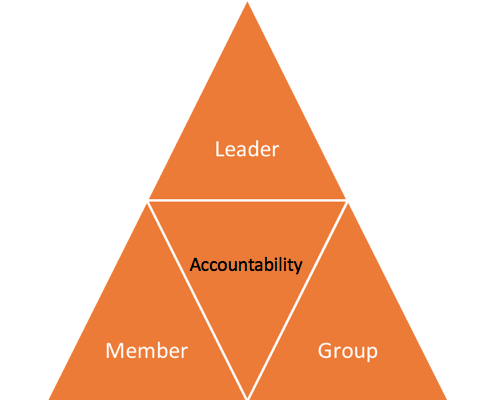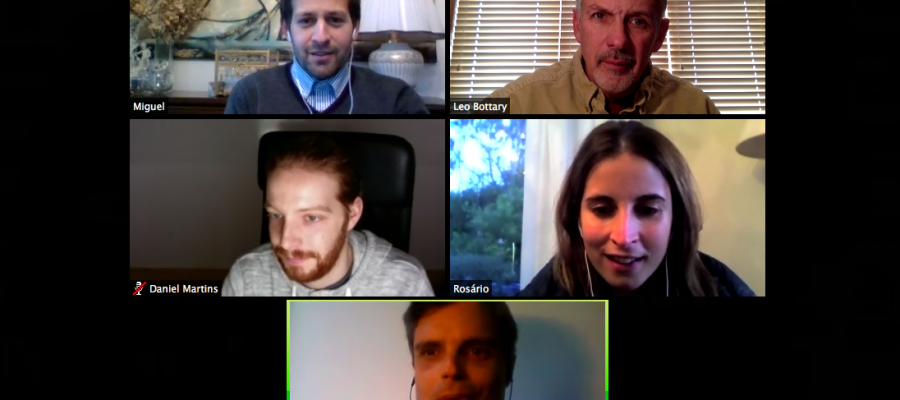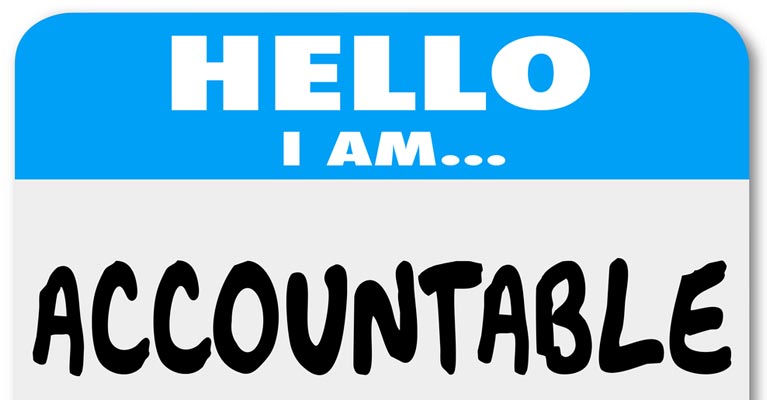In workshops I’ve been conducting with CEO and executive peer groups across the country recently, group members are challenged to assess their overall performance (and develop an action plan for improvement) using the five factors common to high performing peer groups as described in The Power of Peers: How the Company You Keep Drives Leadership, Growth & Success. The five factors are 1) having the right people in the room, 2) promoting a safe and confidential environment, 3) fostering valuable interaction, 4) practicing group accountability, and 5) having excellent servant leadership. You’ll find brief descriptions of each of the five factors here.
The richest conversations in these workshops tend to focus on how to create and sustain a disciplined culture of group accountability – what many group leaders regard to be among the most important, if not THE most important, of the five factors. This essentially means that group members hold one another accountable for doing what they say they will do (DWTSTWD) to achieve their goals. It’s not about accountability to the leader, it’s about accountability to one another.
Yet, to address weaknesses in this area, which are quite common, the tendency of some members is to offer recommendations and action items for the leader. Of course, this is antithetical to what group accountability really means, right?. While the leader can set the tone and serve as a backstop when necessary, the leader should not play the role of implementer and enforcer. If the group wants to practice what it preaches, it can’t cede its responsibility to the leader. It’s up to the individual members and the group as a whole. Unless they take the lead, it will never take hold, nor be very effective.
Let me illustrate the point. If I, as an individual member, bring up an issue or opportunity for discussion with my group and take 45-minutes of their time, benefiting from their experiences and guidance, and declare the action(s) I’m prepared to take based on the conversation, isn’t it my responsibility to offer a status update at the next meeting? Shouldn’t I be the accountability driver? Isn’t that the least I can do for the gift I received from my fellow members? Group accountability has to start with me.
Now, let’s say the next meeting comes along, and I don’t volunteer a status update. It could be because I didn’t do what I said I would do at the last meeting and maybe I’m a bit embarrassed by that. I might not say anything in the hope I can slide and no one will notice. Not a good strategy because it only negatively impacts me and, worse yet, eats away at the culture of the group. The right thing to do is for me to own up to it and say I’ll do better next month. (It’s not the end of the world and at least I’m being honest with my group). Or, it simply slips my mind to report on my action items from the last meeting. In that instance, the next line of defense rests with the group. After all, the other members, all of whom are committed to group accountability, should be interested enough in my progress, given the valuable time they spent helping me at the last meeting, to say, “Hey, Leo. Tell us how your new initiative is coming along?”
If neither I, nor the group, offer an update or fail to ask about it, it would then be up to the leader to ask me why I didn’t initiate the conversation and then to challenge the group by asking, “How is it that not one of you thought to ask? You can’t have a culture of group accountability unless everyone in the group is committed to it.” This is what I mean by the leader serving as the backstop.
For group accountability to become ingrained in the group culture, the individual members and the group as a whole have to accept it as their responsibility. If this is not the dynamic in your peer group today, give it a try and, over time, watch peer group accountability improve and see how everyone starts to achieve even better results.



